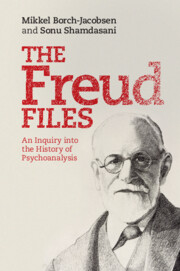Coda
what was psychoanalysis?
Published online by Cambridge University Press: 05 June 2012
Summary
The fashion this winter is psychoanalysis.
André Breton (1990 [1924]), 94Freudian psychology had flooded the field like a full rising tide and the rest of us were left submerged like clams buried in the sands at low water.
Morton Prince (1929), ixI know of no other example of a system of unjustified beliefs which has propagated itself so successfully as Freudian theory. How was it done?
Alasdair MacIntyre (1976), 35The censorship of Freud’s correspondences, the sequestering of documents and reminiscences in sealed boxes in the Freud Archives, the compilation of the official Freud biography and the preparation of the Standard Edition of the Complete Psychological Works of Sigmund Freud was a systematic and concerted enterprise, intended to consolidate and disseminate the Freudian legend. The legend was now everywhere, massive and virtually unassailable. Texts available to researchers and the general public had been carefully filtered and reformatted to present the image of Freud and psychoanalysis that the Freudian establishment wanted to promote. Thus it is no surprise that the apotheosis of psychoanalysis took place in the 1950s, and that it was from America and Britain, the new centres of the psychoanalytic family, that the Freudian wave spread through the world.
For half a century, this artificial construction has formed the basis of our knowledge of Freud and the origins of psychoanalysis. It is striking to see how widely it was accepted, even by those who otherwise had a critical and sceptical view of psychoanalysis. Even when Freud’s works were reread and reinterpreted in heterodox ways, it was always on the basis of the sanitised and dehistoricised version propagated by Anna Freud, Ernst Kris, Ernest Jones, James Strachey and Kurt Eissler. Lacan’s famous ‘return to Freud’ was simply a return to the version of Freud that they had canonised. The same goes for all the more recent hermeneutic, structuralist, narrativist, deconstructivist, feminist and post-modern reformulations of psychoanalysis. Despite their sophistication and their refusal of Freud’s positivism, the Freud which they interpreted/deconstructed/narritivised/fictionalised was always the same legendary Freud, dressed up in the new garments of the latest intellectual fashion.
- Type
- Chapter
- Information
- The Freud FilesAn Inquiry into the History of Psychoanalysis, pp. 300 - 307Publisher: Cambridge University PressPrint publication year: 2011



